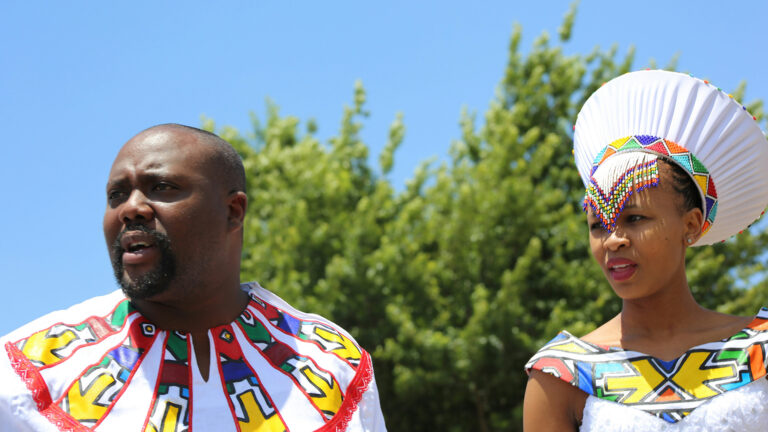Growing up in a fairly traditional middle class Nigerian home (not rich, not poor), the cycle of life was pretty predictable: get an education, get a job, get married, raise a family, pass on the baton, repeat. Though I belonged to a Christian family, and everyone around seemed religious to some degree, there was an unspoken allegiance to culture ahead of faith. Lives dramatically redirected (in the best possible way) on the basis of personal faith and love for Christ – in short living life in Christ – were few and far between.
One ancient refrain, popular amongst the Yorubas, a main cultural sect in Nigeria, loosely translates as follows. “We will observe our cultural rites and traditions; faith does not prevent us from so doing in good faith”— pun intended. Matters of faith and religion remained a tangential part of the larger societal life and culture. What seemed to be weightier though, was for one to be seen in good standing – regardless of the source of that morality. Generally speaking, the expectations of measurable material success outweighed its less visible spiritual counterpart. Admittedly, I do paint with a broad brush. But hopefully not without warrant.
Living from Identity in Christ
On my part, even though I was genuinely saved and I prioritised my Christian faith, I would only realise much later in life that there was more to being a Christian than showing up for church and trying hard to be good. Through my early years, I managed to stay away from trouble. Partly this was due to my having a strict father, and partly because my introverted personality meant that the wild side of youthful exuberance didn’t appeal so much to me. Thankfully, FOMO wasn’t as much a thing back then.
The gospel gave me an identity to live from, in exchange for an image to live up to.
I remain particularly grateful for the Christian upbringing and heritage I received. Yet I cannot refute the watershed that a later and fuller grasp of the gospel proved to be in my life. After that it was no longer business as usual. The gospel gave me an identity to live from, in exchange for an image to live up to. Life stopped being primarily about what society expected of me. Nor about conforming to traditional patterns that subtly competed with biblical standards. I would later discover a phrase that fittingly described my experience: a changed worldview. Like a pair of glasses, a biblical worldview brought a whole new dimension to the way I perceived life, along with what I desired from it.
Embracing A New Life in Christ
It’s important for us as professing Christians to embrace the reality of our new life in Christ. If it is really true – and it is – that, in Christ, the old has passed away and the new has come, then surely life-altering change is inevitable and far reaching.
Fast forward to 2019, where I am rapidly approaching ‘midlife’. The objective and fundamental reality of what it means to be a Christian remains unchanged. For Christ is still Lord and I belong to him. As such, as the years pass by I am continually tasked with the duty of working out what his lordship means – at every twist and turn of my life – peculiarly so as a woman.
Like a pair of glasses, a biblical worldview brought a whole new dimension how I perceived life. And what I desired from it.
Equal but Distinct
The Bible explicitly affirms the equality of men and women in dignity and value. And by extension, the same stance holds true for all humans, regardless of mental and physical ability, race or economic status. The prime reason this is so is that all are created in God’s image. “So God created man in his own image, in the image of God he created him; male and female he created them” (Genesis 1:27).
However, what is less politically correct to affirm today is the distinction in gender roles. Yet God, in his wisdom, designed one gender to complement the other for the good of society and human flourishing. Embracing the idea of distinct roles ought not be confused with stereotyping gender roles. Different cultures and life circumstances will reflect varied expressions of this ‘complementary dance’. But in all of those, we must seek to honour the essence of each God-given role – we must all pursue life in Christ.
Embracing the idea of distinct roles ought not be confused with stereotyping gender roles.
Looking to Jesus
In a world of endless debates on matters of significant importance, it is crucial not to be swayed by popular opinion. Rather, we must keep our gaze on the One who is worthy to be looked upon and followed. As the writer of Hebrews admonishes: “Therefore, since we are surrounded by such a great cloud of witnesses, let us throw off everything that hinders and the sin that so easily entangles. And let us run with perseverance the race marked out for us, fixing our eyes on Jesus, the pioneer and perfecter of faith” (Hebrews 12:1-2).
Knowing that my sense of identity and worth does not necessarily come from a job title or a beauty product puts the wind in my sails. The gospel offers freedom like no other. It infuses meaning into otherwise mundane tasks that mostly characterise the life of a woman such as me. And for this I am inexpressibly grateful to God.












